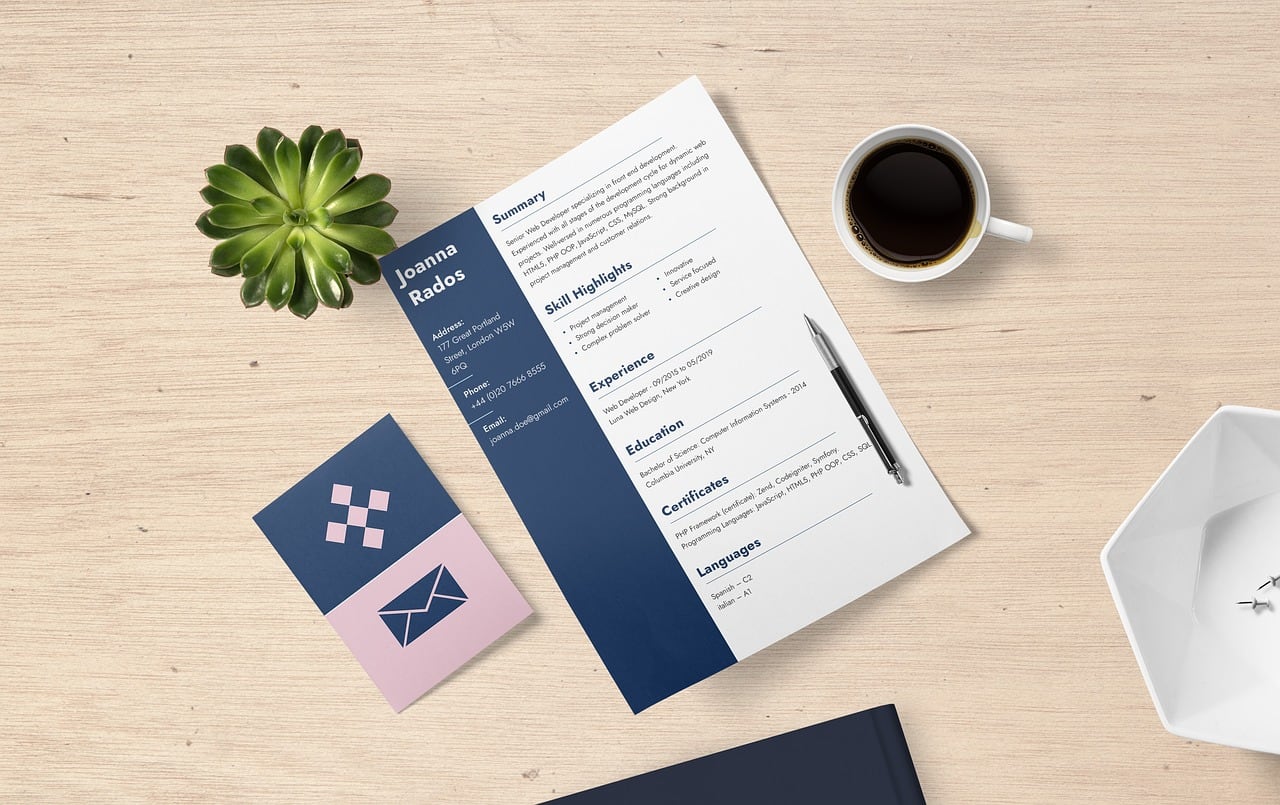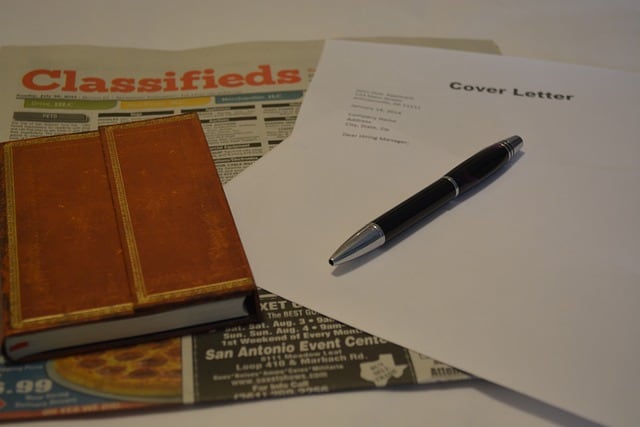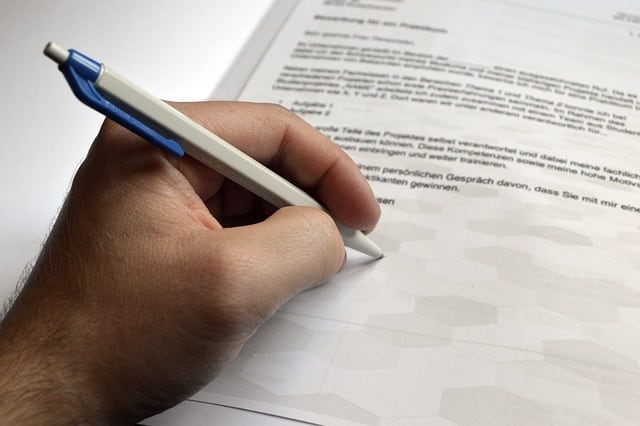Maximizing Your Event Planning Experience on Your Resume

Organizing events can be a daunting task, but with the right knowledge and skills, it can also be incredibly rewarding. As an event planner, you understand the importance of planning and executing successful events. To make sure your hard work is recognized, you’ll need an impressive event planning resume that emphasizes your expertise and accomplishments. In this article, we’ll break down what to include in an event planning resume as well as provide tips for writing an effective one that will help you land your dream job!
What is an Event Planning Resume?
An event planning resume is a document that outlines your experience, skills, and knowledge related to organizing events. The purpose of the resume is to show potential employers that you have the necessary qualifications and experience to be successful in an event planner position. It should include information about the types of events you’ve planned (i.e., corporate events, social events, weddings, etc.), venues you’ve managed, and tasks you’ve completed. It should also demonstrate your transferable skills such as customer service, interpersonal skills, project management, venue selection, and event coordination. Additionally, it should highlight any relevant experience such as previous jobs or certifications that may be beneficial for the job. Ultimately, an event planning resume should showcase your ability to successfully handle large-scale events and create strong relationships with vendors and clients.

Your event planning resume should be a testament to your creative problem-solving abilities, organizational skills, and impressive track record of successful events. Now see what you need to include in your event planning resume to make it stand out!
What to Include in Your Event Planning Resume?
Writing an effective event planning resume is essential for any job seeker looking to make a successful career in this field. Your resume should highlight your key skills and experiences that are relevant to the position you're applying for.
When creating your resume, it is important to include details about the types of events you have planned, such as corporate events, weddings, or social gatherings. Additionally, include details about any venues you have managed and tasks you completed during those events. Showcasing your experience with event planning software such as Eventbrite or Cvent can also be beneficial in helping employers understand your qualifications.
In addition to detailing your experience in event planning, make sure to highlight any other relevant skills – such as customer service or project management – that may apply to the position. Also, be sure to mention any certifications or special training you have received that could prove beneficial when tackling different types of projects or managing large-scale events.
Finally, don’t forget to provide a summary of yourself at the end of the document! This will help employers get a better idea of who you are outside of your professional background and give them insight into why they should consider hiring you as their next event planner.
Unleash Your Event Planning Superpowers with These Resume Writing Tips!
Writing a resume for an event planning role can be a daunting task. It's important to showcase your professional experience and relevant skills so employers can get a better understanding of your qualifications. Here are some tips to help you craft an effective event-planning resume:
First, make sure to include details about the types of events you have planned and the venues in which you've managed them. This will show employers your experience in different aspects of event planning. Additionally, don’t forget to detail any certifications or special training you have received related to the field.
Next, highlight any other relevant skills that could prove beneficial when tackling various projects or managing large-scale events. These could include customer service, project management, interpersonal skills, and more!
Finally, it's important to provide a summary about yourself at the end of the document. This will give employers insight into who you are outside of your professional background and why they should consider hiring you as their next event planner.

Professional Experience
When it comes to an event planner's resume, professional experience is key. When crafting your resume, highlight the events you have planned in the past and any successful outcomes you may have achieved. This includes corporate events, social gatherings, weddings, or any other events you have managed successfully. You should also include details such as venues you've worked with and any specific event planning software you are experienced in using. It's important to demonstrate your ability to handle a variety of tasks while still having the flexibility to pivot when needed. Additionally, if you have established strong relationships with vendors through past work, mention them to showcase your networking skills and ability to build valuable connections within the industry. Make sure that all of your relevant experience is highlighted clearly so employers can see what sets you apart from other job seekers!
As an event planner, I take great satisfaction in seeing a successful outcome from the events that I have planned. With my experience and ability to foster relationships with vendors and venues, I look forward to taking on new challenges and making each event a success! Now that you know more about my background, let's dive into the details of my relevant experience.
Listing Relevant Experience
When it comes to writing an event planning resume, the most important thing is to highlight your relevant experience. Think about all of the events you have planned in the past and what made them successful. This can include corporate events, social gatherings, weddings, or any other events you have managed successfully. Be sure to include details such as venues you've worked with and any specific event planning software you are experienced in using. Additionally, if you have established strong relationships with vendors through past work, make sure to mention those too!
By highlighting your experience on your resume, employers will be able to immediately see how qualified you are for the job. Make sure that all of your relevant experience is listed clearly and concisely so employers can quickly get a sense of what makes you stand out from other applicants. With a well-crafted event planner's resume, potential employers will be able to easily understand why they should hire you!
Utilizing Transferable Skills
When it comes to event planning, many job seekers may not have the specific experience needed for the position. However, that doesn't mean you can't still be a great fit! Many employers are looking for candidates who possess transferable skills that can be applied to the event planning field. Utilizing these skills can help demonstrate your qualifications and make you a more attractive candidate.
Transferable skills are those which can be used in a variety of different situations and contexts. For example, strong customer service skills, interpersonal communication abilities, and project management techniques all fall into this category. If you have any of these key skills, make sure to highlight them on your resume so employers know what sets you apart from other applicants.
Additionally, look for ways to apply these transferable skills to past events or experiences to showcase their relevance to an event planning role. By doing this, job seekers can easily demonstrate their capabilities and make themselves stand out as potential hires!

Highlighting Key Skills and Accomplishments
When writing a resume for an event planning position, it's important to focus on highlighting key skills and accomplishments. Doing this will show employers that you have the right qualifications for the job and help you stand out from other applicants.
Start by making a list of relevant skills that apply to event planning. This could include things like strong interpersonal communication abilities, experience in venue selection, project management techniques, and knowledge of event planning software. Once you have identified your most pertinent skills, make sure they are featured prominently on your resume.
It is also beneficial to showcase any past events or experiences that demonstrate your capabilities as an event planner. Employers want to see evidence that you can successfully produce successful events, whether corporate or social. Mention any large-scale events or wedding planners with whom you have worked in the past and what relationships you developed with them during the process. Doing so will help you show employers that you have the experience needed for the job.
In conclusion, when creating an event planning resume, make sure to highlight key skills and accomplishments to demonstrate your qualifications and prove your worth as a potential hire!
Education and Certifications
When applying for a job in event planning, it's important to emphasize your education and certifications. Having the right qualifications will show employers that you have the necessary knowledge and skills to execute successful events.
Start by listing any relevant degrees or certifications on your resume. Include the school from which you obtained your degree as well as any professional certifications you may have earned. Even if they are not directly related to event planning, they can still demonstrate valuable transferable skills that can be applied to the job.
You may also want to consider completing additional courses or attending seminars that are pertinent to the field of event planning. Doing so will make you even more attractive to potential employers and give them confidence in your abilities as an event coordinator. It will also show that you are dedicated to continuing your education and staying up-to-date on industry trends and practices.
By emphasizing your education and certifications, you can demonstrate that you have what it takes to be an effective event planner!
With the right qualifications, you can show employers that you have the knowledge and skills to put on successful events. Make sure your education and certifications are front and center on your resume to demonstrate your capabilities as an event coordinator. Stay ahead of the competition by including degrees and certifications related to event planning - read on to find out how!
Including Degrees and Certifications Related to Event Planning
Having the right qualifications is essential for landing a job in event planning. Showing potential employers that you have the knowledge and skills to put on a successful event is key, so it's important to emphasize your education and certifications on your resume.
Include any relevant degrees or certifications you’ve earned, even if they are not directly related to event planning. Such degrees can still demonstrate valuable transferable skills that can be applied to the job. You may also want to consider completing additional courses or attending seminars pertinent to the field of event planning. Doing so will make you even more attractive to potential employers, as well as show that you are dedicated to continuing your education and staying up-to-date on industry trends and practices.
By emphasizing your education and certifications, you can demonstrate that you have what it takes to be an effective event planner! Make sure these qualifications are front-and-center on your resume; they just might be what sets you apart from other job seekers in this competitive field.
Showcasing Relevant Training Courses or Workshops Attended
Staying up-to-date on the latest event planning trends is essential for any successful event planner. While formal education and certifications are important, attending relevant training courses or workshops can also show that you have the skills necessary to plan and execute a successful event.
For your resume, make sure to list any relevant training courses or workshops you’ve attended. Even if they weren’t directly related to event planning, they can still demonstrate valuable transferable skills that could be applied to the job. For example, if you attended a course on project management and budgeting, this could be beneficial when it comes to handling all of the logistics involved in an event.
When listing these courses or workshops, include what topics were covered as this will help potential employers gain insight into your knowledge base. Additionally, it may be helpful to provide brief descriptions of how each training course has helped hone your skills in areas such as customer service or venue selection. This will give employers an idea of how qualified you are for the job and why they should hire you over other applicants.
By showcasing your relevant training courses and workshops on your resume, you can demonstrate that you have what it takes to be an effective event planner!
Soft Skills and Interpersonal Abilities
Soft skills and interpersonal abilities are essential for any event planner. After all, planning events comes with working closely with a variety of other stakeholders, from vendors to clients. Therefore, having strong communication skills and the ability to build and maintain relationships is key when it comes to succeeding in this role.
To highlight your soft skills on your resume, you can emphasize how your interpersonal abilities have helped you succeed in past roles. For example, you could mention how you worked with local vendors to secure the best deals for events or how you built strong relationships with clients that resulted in repeat business. You can also include examples of successful negotiations that demonstrate your ability to think on your feet and be diplomatic when needed.
In addition to including relevant experiences on your resume, don’t forget to list any awards or recognition you may have received for your outstanding communication and interpersonal skills. This will give employers an idea of the kind of soft skills you possess as well as any successes associated with them!
In conclusion, event planning is not just about the logistics and details of organizing an event - it’s also about connecting with people. Having strong interpersonal skills and the ability to build relationships is essential for any successful event planner. Showcasing your soft skills on your resume and highlighting any awards or recognition you have received will demonstrate to employers that you possess the interpersonal skills needed for this role. Get ready for the next section as we dive into how to demonstrate leadership qualities in your event planning
Demonstrating Leadership Qualities
Having strong leadership qualities is essential for any event planner. After all, leading a successful event requires the ability to make decisions quickly and effectively, manage multiple stakeholders, and ensure deadlines are met. To demonstrate your leadership skills on your resume, you can emphasize how you have successfully led teams or initiatives in past roles.
For example, you could mention how you created and managed a team of volunteers for a large-scale event or how you were able to implement a new process that increased efficiency by 20%. You should also include any awards or recognition you may have received for your leadership abilities. This will show employers that you possess the necessary skills to lead events with confidence.
In addition to including relevant experiences on your resume, don’t forget to highlight any special projects that required strong leadership abilities. For instance, if you planned an event from start to finish without any guidance from supervisors, this is something that should be highlighted as it shows initiative and independence!
Leadership skills are essential when it comes to planning successful events. Demonstrating these qualities on your resume will give employers an idea of the type of leader you are and highlight any successes associated with them!
Describing Communication Capabilities
Excellent communication capabilities are a must-have for any event planner. After all, successful events require coordinating multiple stakeholders, managing customer expectations, and ensuring deadlines are met. To demonstrate your communication skills on your resume, you can emphasize how you have successfully communicated with clients in past roles.
For example, you could mention how you communicated effectively with vendors to secure the best deals for an event or how you were able to collaborate with colleagues from different departments to create a cohesive plan. You should also include any awards or recognition you may have received for your communication abilities. This will show employers that you possess the necessary skills to communicate effectively when planning events.
In addition to including relevant experiences on your resume, don’t forget to highlight any special projects that required strong interpersonal skills. For instance, if you successfully negotiated a beneficial contract with a vendor without any guidance from supervisors, this is something that should be highlighted as it shows initiative and independence!
Communication capabilities are essential when it comes to planning successful events. Demonstrating these qualities on your resume will give employers an idea of the type of communicator you are and highlight any successes associated with them!
Technical Knowledge & Expertise
As an event planner, having strong technical knowledge and expertise is essential for success. When it comes to project management, you need to be able to manage multiple stakeholders and coordinate their efforts to ensure the successful execution of the event.
The ability to use project management software can also be a great asset. Software such as Microsoft Project and Trello can help you stay organized, keep track of tasks, and prioritize them according to importance. This will save you time in the long run and help deliver events on schedule.
Furthermore, having a good understanding of financials is critical when it comes to planning events. Being able to budget effectively and create cost-effective solutions can go a long way toward ensuring that events are within budget and still meet customer expectations.
Ultimately, possessing strong technical knowledge and expertise is key for any event planner looking to succeed in their role. Knowing how to effectively use project management software, understand financials, and manage multiple stakeholders are all important elements that employers look for when assessing job candidates!
Outlining Career Goals & Objectives
Outlining career goals and objectives is an important step in any job search. Knowing what you want to get out of a new position, or even your current one, can help guide your decision-making and ensure that you’re on the right track toward achieving success. When it comes to career goals, it’s important to be realistic with yourself and set achievable targets. Think about what skills you need to develop, how much experience you want to gain, and what kind of salary you want to earn. This will help ensure that your career path aligns with your aspirations. Additionally, taking the time to define measurable objectives will give you something tangible to work towards and provide measurable progress checks along the way. Having this sense of purpose can make all the difference when it comes to staying motivated and pushing yourself toward success!
Awards & Recognitions
Receiving awards and recognition for your work is incredibly rewarding! Not only does it show employers that you have the skills and expertise necessary to excel in your field, but it also serves as a great source of motivation. Acknowledging your successes can help boost your self-confidence and remind you of the value you bring to any organization. Awards and recognitions come in many forms, from public accolades like industry awards or press coverage to private acknowledgments such as letters of commendation or performance bonuses. Regardless of the form they take, these types of recognitions can provide an uplifting boost in morale that can help keep you motivated to achieve even greater success!
People also ask
What are planning skills in a resume?
Planning skills in a resume refer to the ability to organize and prioritize tasks, set goals and objectives, and develop strategies to achieve them. Planning skills also include the ability to anticipate potential problems and develop contingency plans to mitigate risks. These skills are important in many industries and job roles, including project management, event planning, and operations management. Employers look for candidates with strong planning skills because they are essential for ensuring that projects are completed on time, within budget, and to the desired quality standards. In a resume, planning skills can be demonstrated through examples of successful project management, team coordination, and strategic planning.
What is the objective of event planning?
The objective of event planning is to create a successful and memorable event that meets the needs and expectations of the clients and attendees. This involves careful planning, budgeting, and executing various aspects of the event, such as venue selection, catering, entertainment, decorations, and logistics. The ultimate goal is to provide a positive and enjoyable experience for everyone involved, while also achieving the desired outcomes and objectives of the event, such as fundraising, promotion, or networking. Effective event planning requires attention to detail, communication, and flexibility to adapt to unexpected challenges or changes.
How do you describe event management on a resume?
When describing event management on a resume, it is important to highlight your skills and experience in planning, organizing, and executing events. This can include the ability to work within a budget, coordinate vendors and suppliers, manage timelines and schedules, and communicate effectively with clients and event attendees. It is also important to showcase any specific event management software or tools you are proficient in, as well as any successful events you have managed in the past. Additionally, highlighting any leadership or team management skills can demonstrate your ability to effectively manage a team and delegate tasks to ensure a successful event.

Comments